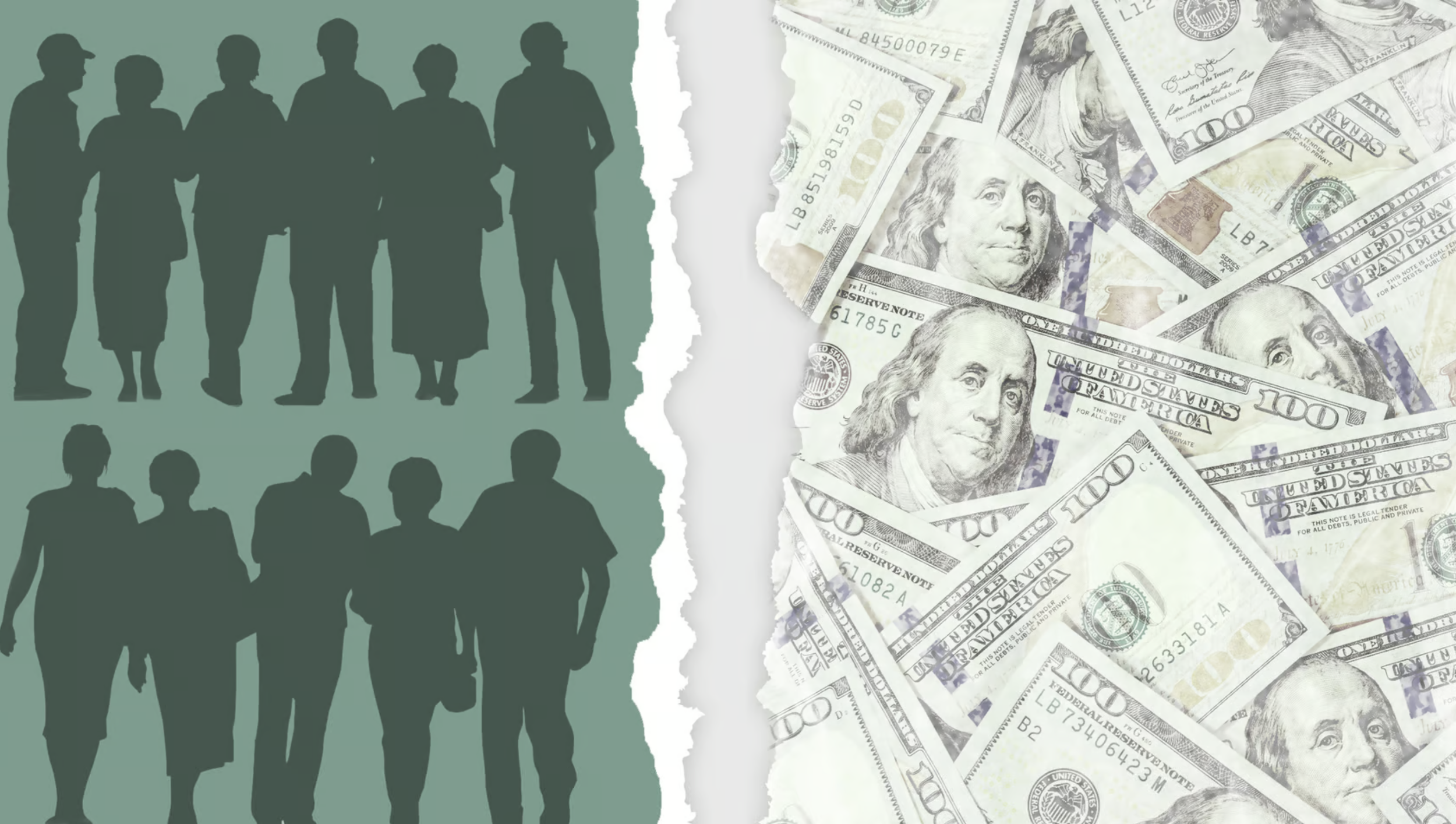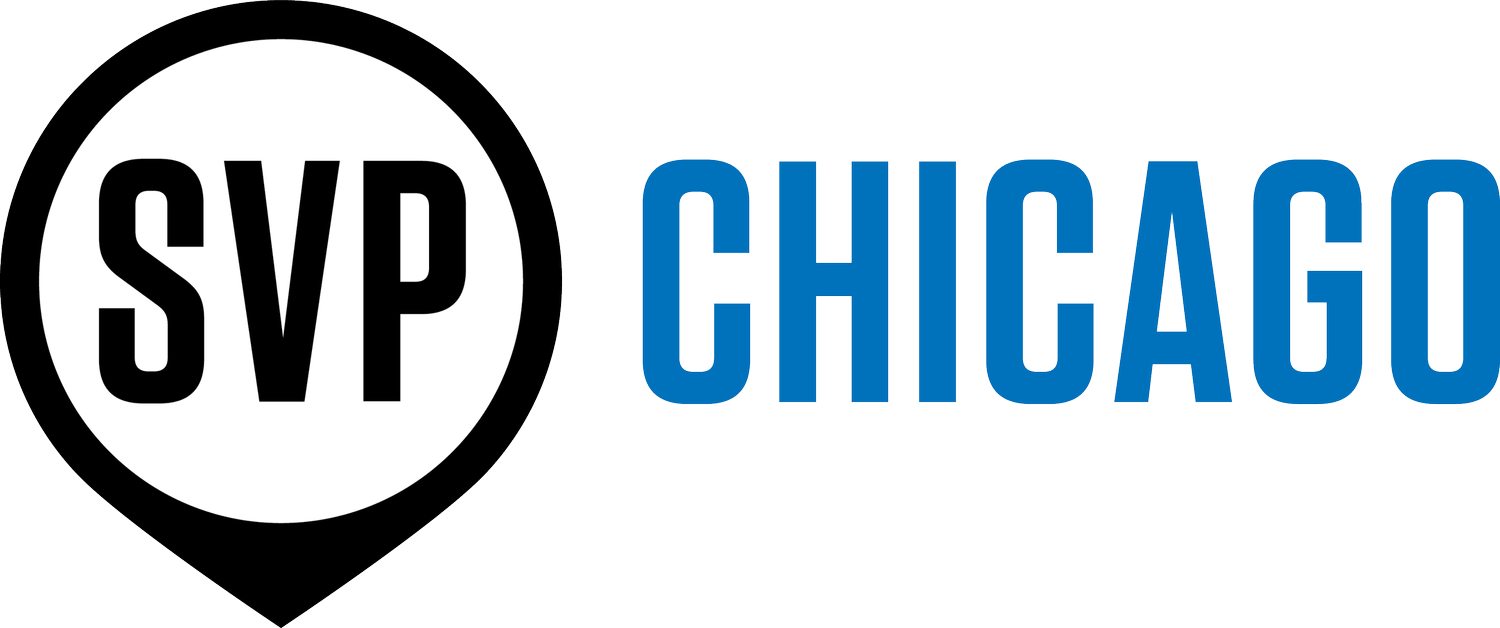
Our Learnings
News from Our Nonprofits
-

Community Partner Ladies of Virtue Awarded $50K Grant from Obama Foundation
More than a dozen organizations offering activities, healing and education to girls in Chicago received funding this week to expand their programs. LOV received maximum grant awarded.
-

Dion’s Chicago Dream Brings Free Grocery Program To Morgan Park
Our community partner and 2022 Fast Pitch participating leader, Dion Dawson, founder of Dion’s Chicago Dream, unveiled his second set of Dream Vaults last week. They will provide 175 households with free produce every week.
-

Op-ed by Yolanda Fields and Damien Morris: Reducing Violence in Garfield Park Requires Community Involvement
Yolanda Fields, executive director of our community partner Breakthrough, writes in this op-ed that violence prevention needs a hyperlocal focus.
-

How City Hall Can Help End Hunger in Chicago
Dion Dawson, our 2022 Spirit of Fast Pitch award winner and co-chair of our 2023 Fast Pitch Fun(d) Squad, recently wrote an op-ed for Crain's Chicago Business about how City Hall can help end hunger in Chicago.
-

Urban Essentials Brings New Black-Owned Coffee Shop To Austin
A Black-, family-owned coffee shop has opened in Austin’s Soul City Corridor after meeting with Malcom Crawford, executive director of our community partner Austin African American Business Networking Association.
-

Chicago White Sox Honors Southside Blooms
The Chicago White Sox honored our Fast Pitch participant Southside Blooms as a part of their "Southside Mondays" where they feature an impactful business on the Southside of Chicago!
-

Invited In Only To Be Shut Out
Asiaha Butler, Athena Williams, and Malcolm Crawfor, three of our community partner executive directors, are featured in this article.
-

Austin Coming Together Announces Updates on Multi-million Dollar Projects
Athena Williams, executive director of our community partner Oak Park Regional Housing Center, spoke at at the annual Austin Coming Together panel.
-

Baseball Star Helps to Feed Families in Chicago Through Firehouse Community Arts Center
Curtis Granderson, baseball star, participated in a food giveaway, handing out grocery bags full of four healthy meals provided by our community nonprofit the Firehouse Community Arts Center who give out meals weekly.
Strategic Philanthropy
-

Grant Makers, Here’s How to Support Nonprofits Led by People of Color
A worrying trend is seen by those of us who work with nonprofits led by and serving people of color.
-

Deepening Impact Through Relational Philanthropy
Philanthropy must learn to center relationships without backing away from the inherent messiness of diverse points of view.
-

Melinda French Gates's Apparent Embrace of Trust-Based Philanthropy Should Inspire Others
Her giving approach underscores the importance of human-centered grant making.
-

Nonprofit Leadership Transitions: Four Ways Funders Can Support Leaders of Color
Leaders of color are bringing their considerable talents and lived experiences to top leadership positions in the social sector. At the same time, as incoming executive directors and CEOs, they often face institutional and systemic challenges that make it difficult for them to fully thrive in their roles. Here are four ways funders can help new leaders avoid common challenges and invest in their success during leadership transitions.
-

Small Organizations: The Change That Systems Change Needs
This article outlines the bias that systems change thinking can often have against smaller, community based organizations and outlines case studies where the impact of investing in small nonprofits has been monumental. Their recommendation: support smaller, locally led organizations to unlock their incredible potential to influence systems.
-

Investing in Black Women Leaders With the Dream Capital They Need
Black women have always stood up and pushed for social progress—despite being deeply marginalized by the very systems they push to change. We all benefit when our most transformative change agents are given the time and resources necessary to dream big.
-

More Than Half of Black-Serving Groups Would Shut Down if They Lost Key Donors
Most nonprofits operate on razor-thin margins and need more philanthropic support for training in fundraising, leadership, and financial management, a new survey has found.
-

Why I Stopped Donating to Your Organization
In this oped, the author encourages behavior from the donor and nonprofit organization that are counterproductive to the relationship building and trust- based philanthropy that we know makes a difference. Take a read to find out what not to do!
-

Philanthropy Needs to Focus on "Who" Not Just "How"
When we rethink who is a philanthropist, who receives philanthropic support, and who has the power to decide where philanthropic resources flow, we unlock philanthropy’s potential to create lasting, positive social change.
-

A Social Movement Requires Momentum
SSIR discusses how thousands of undercapitalized community-based leaders could quickly gain significant momentum if impact investors and funders change their strategy. The five “what if” scenarios outlined in this article are examples of where shifting social capital could make real impacts in communities like Chicago’s South and West Sides.
-

Building Connections by Design
SVP Chicago is dedicated to developing relationships, by both working closely with each of the nonprofits we partner with, and by fostering connections between these organizations. In this article, SSIR discusses how strengthening connections has been shown to help solve problems, even at the systemic level.
Who, What, Where, Why, How
-

Why Are There No Sit-Down Restaurants In Englewood?
Decades of disinvestment have left the once-thriving South Side neighborhood with few full-service dining options. Local entrepreneurs and community groups are working to change that.
-

How An Englewood Artist And Activist Is Helping Black Families Keep Their Homes
Through “unBlocked Englewood,” Tonika Lewis Johnson and the Chicago Bungalow Association are paying for home repairs along one block, which the organizer hopes can help reverse decades of discriminatory housing policies.
-

Direct cash payments are changing lives in Cook County.
Researchers at the University of Chicago have been studying guaranteed income programs in the region, but there are some results data alone can’t reveal. So, one Chicago-based sociologist spoke with people receiving monthly cash assistance to find out more about the difference it makes in their lives.
-

What It's Like To Live In Chicago's Most Violent Neighborhood, West Garfield Park
Hear perspectives and stories from residents who have stayed in West Garfield Park despite the nearly constant gunfire.
-

Innovating to Address the Systemic Drivers of Health
Systemic Drivers of Health extend beyond traditional health care and the individual’s immediate situation to include the behavioral, social, environmental, and structural factors that can have a direct impact on their overall health. In order to truly understand these factors, innovators need to examine the root cause drivers of our health challenges.
-

The Americans Most Threatened by Eviction: Young Children
About a quarter of Black babies and toddlers in rental households face the threat of eviction in a typical year, a new study says, and all children are disproportionately at risk.
-

These South And West Side Neighborhoods Have Been Hardest Hit By Pollution, Study Shows
Chicago’s “environmental justice neighborhoods” were identified in a new study, which will help inform how the city develops communities overburdened by pollution and industry.
-

What dollar stores cost Chicago's South and West side communities
Throughout Chicago's South and West sides, retail corridors are heavily populated with stores that do not keep wealth in the community.
-

From the New York Times: Ex-Prisoners Face Headwinds as Job Seekers, Even as Openings Abound
An estimated 60 percent of those leaving prison are unemployed a year later. But after a push for “second chance hiring,” some programs show promise.
-

Why Closing Chicago's Racial Wealth Gap Became a Priority
The effects of redlining still reverberate today and are a major contributor to Chicago's wide and persistent racial wealth gap. The predominantly Black and Brown neighborhoods on the South and West sides have yet to recover from a transfer of wealth from homeowners to real estate speculators.
-

‘Decades Of Neglect’ Have Led To Half Of Chicagoans Seeing A Shooting Before 40, Advocates Say
A recent study showed that half of Chicagoans witness a shooting by the time they turn 40. Violence interrupters say this is further evidence of how gun violence is borne out of systemic neglect of Black and Brown neighborhoods.
